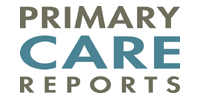2 October 2013
NICE Draft Guidance Recommends Tests to Help Target Treatments for Bowel Cancer
In draft guidance published today NICE, the independent body responsible for improving quality and encouraging excellence in health and social care, has recommended a number of tests to help doctors target treatments more effectively for people with advanced (metastatic) colorectal cancer.
Colorectal cancer (also called bowel cancer) is the third most common cancer in the UK after breast and lung cancer, with around 40,000 new cases each year. Colorectal cancer is the second most common cause of cancer death in the UK and the 5-year survival rate for metastatic colorectal cancer is less than 7%.
Metastatic colorectal cancer is where the primary cancer has spread from the colon or rectum to other parts of the body, such as the liver. Estimates suggest that as many as half of all people presenting with colorectal cancer have metastatic disease, and up to 60% of patients who have undergone surgery for early stage colorectal cancer will eventually develop advanced disease and distant metastases, most commonly in the liver. In patients where the cancer has spread to the liver, chemotherapy can be used to shrink the tumour if it is initially too large to be surgically removed.
Between 35% and 40% of advanced colorectal cancers harbour a mutation in the KRAS oncogene (an oncogene is a gene which can cause cancer). This mutation is known to make the cancer more aggressive, leading to poorer survival compared to people whose cancer does not have the mutation. In addition, tumours with this mutation do not respond to treatment with the chemotherapy drug cetuximab, so these patients would experience the toxic side effects of the drug unnecessarily and would gain most benefit from being treated with standard chemotherapy alone. Determining the KRAS mutational status of tumor samples has therefore become an essential tool for managing patients with colorectal cancers.
Although NHS laboratories in England currently use a range of tests to identify the KRAS mutational status of colorectal tumours, there is currently no consensus on which ones should be used. The purpose of this evaluation was to assess the clinical and cost effectiveness of nine KRAS mutation tests to inform first-line treatment with cetuximab as currently recommended by NICE (technology appraisal 176).
The draft guidance recommends the following tests as options for determining the KRAS mutation status in adults with metastatic colorectal cancer:
- Therascreen KRAS RGQ PCR Kit (Qiagen)
- KRAS LightMix Kit (TIBMolBiol)
- Pyrosequencing of codons 12, 13 and 61
- MALDI-TOF (matrix-assisted laser desorption ionization time-of-flight) mass spectrometry of codons 12, 13 and 61
Commenting on the draft guidance, Professor Carole Longson, NICE Health Technology Evaluation Centre Director, said:
“Treatment with the chemotherapy drug cetuximab should only be given to people with metastatic colorectal cancer whose cancer does not have the KRAS mutation. Therefore it's important to be sure that the tests being used to identify these patients are able to do so accurately and cost-effectively. The available evidence shows that four of the tests looked at as part of this assessment are clinically effective and cost effective for informing the first-line treatment of metastatic colorectal cancer in patients whose tumours test negative for the KRAS mutation. The provisional recommendations on the use of these tests are now open for consultation and we look forward to receiving comments from health professionals, industry and patient groups.”
The Committee further concluded that the evidence was insufficient to allow any recommendations to be made on the use of the other KRAS mutation testsi. The Committee therefore requested additional data to inform further consideration of these tests.
References
i. Therascreen KRAS Pyro Kit (Qiagen)
KRAS StripAssay (ViennaLab)
COBAS KRAS Mutation Test (Roche Molecular Systems)
High-resolution melt analysis of codons 12, 13 and 61
Next-generation sequencing of codons 12, 13 and 61.
About the draft guidance
1. The draft guidance on KRAS mutation testing of tumours in adults with metastatic colorectal cancer is available on the NICE website
About NICE
2. The National Institute for Health and Care Excellence (NICE) is the independent body responsible for driving improvement and excellence in the health and social care system. We develop guidance, standards and information on high-quality health and social care. We also advise on ways to promote healthy living and prevent ill health.
3. Formerly the National Institute for Health and Clinical Excellence, our name changed on 1 April 2013 to reflect our new and additional responsibility to develop guidance and set quality standards for social care, as outlined in the Health and Social Care Act (2012).
4. Our aim is to help practitioners deliver the best possible care and give people the most effective treatments, which are based on the most up-to-date evidence and provide value for money, in order to reduce inequalities and variation.
5. Our products and resources are produced for the NHS, local authorities, care providers, charities, and anyone who has a responsibility for commissioning or providing healthcare, public health or social care services.
To find out more about what we do, visit our website: www.nice.org.uk and follow us on Twitter: @NICEcomms.
